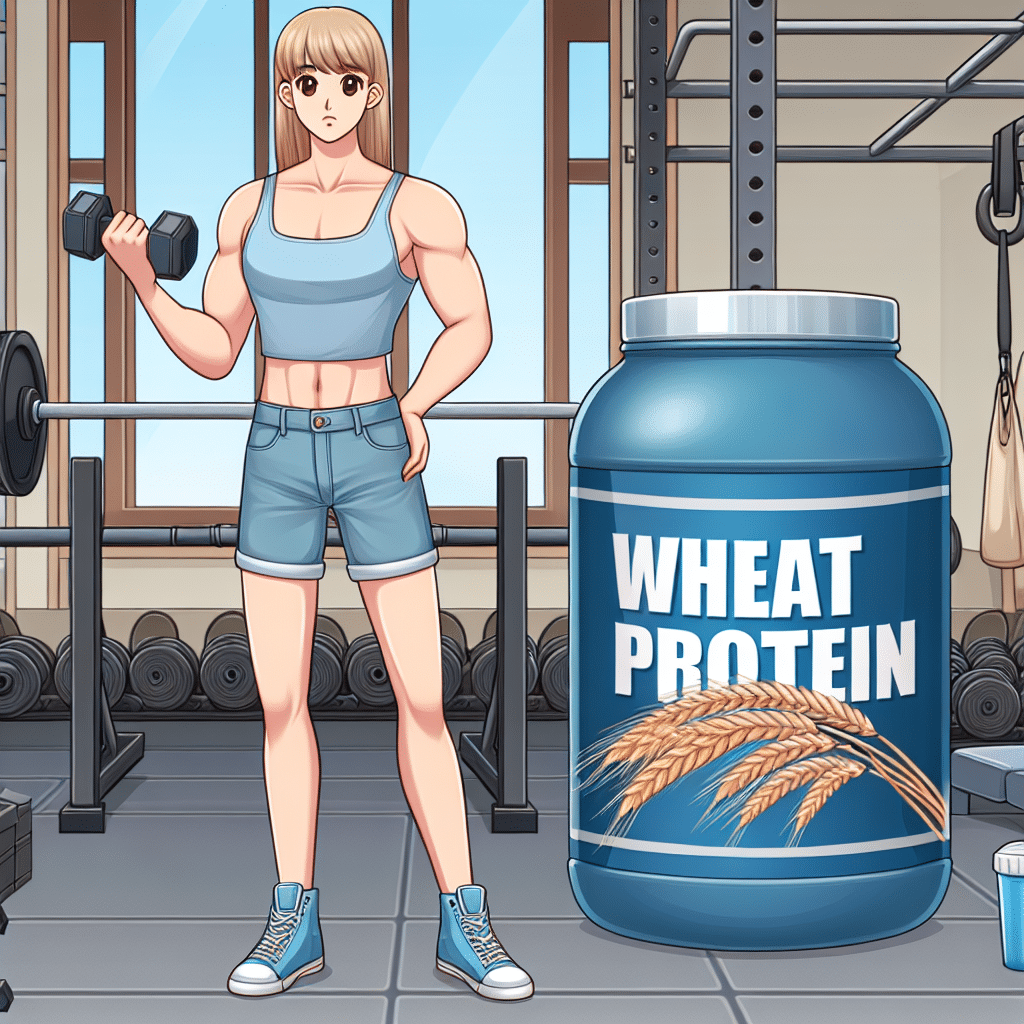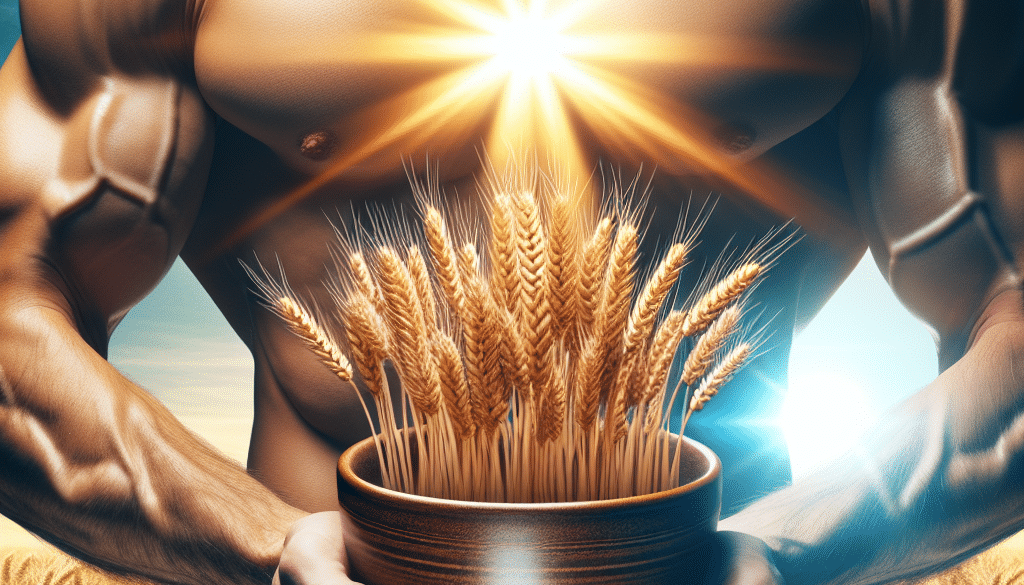Can You Build Muscle With Wheat Protein? Deep dive
Table of Contents
- Building Muscle with Wheat Protein: A Viable Option?
- Understanding Wheat Protein
- Protein Quality and Muscle Synthesis
- Comparing Wheat Protein to Other Protein Sources
- Research on Wheat Protein and Muscle Growth
- Practical Considerations for Incorporating Wheat Protein
- Case Studies and Anecdotal Evidence
- Conclusion: Can You Build Muscle with Wheat Protein?
- Discover ETprotein’s High-Quality Protein Products
Building Muscle with Wheat Protein: A Viable Option?

When it comes to building muscle, protein is the cornerstone of muscle repair and growth. The fitness and health industries have long emphasized the importance of protein, often focusing on animal-based sources like whey, casein, and eggs. However, with the rise of plant-based diets and the search for alternative protein sources, wheat protein has emerged as a potential contender. This article explores the efficacy of wheat protein in muscle building, backed by scientific research and nutritional insights.
Understanding Wheat Protein
Wheat protein, also known as wheat gluten or seitan, is derived from wheat flour and is a popular meat substitute among vegetarians and vegans. It is created by washing wheat flour dough with water until all the starch granules have been removed, leaving behind a sticky mass of pure gluten protein. This gluten is then cooked and used in various recipes.
Protein Quality and Muscle Synthesis
The quality of protein is determined by its amino acid profile and digestibility. A complete protein contains all nine essential amino acids in sufficient quantities. These amino acids are crucial as the body cannot synthesize them on its own, and they play a vital role in muscle protein synthesis.
- Amino Acid Profile: Wheat protein contains a reasonable amount of amino acids, although it is low in lysine, which is essential for protein synthesis.
- Digestibility: The digestibility of wheat protein is generally lower than that of animal-based proteins, which may affect its efficiency in promoting muscle growth.
Comparing Wheat Protein to Other Protein Sources
When comparing wheat protein to other sources, it’s important to consider both the biological value (BV) and the protein digestibility-corrected amino acid score (PDCAAS). These measures help determine how well the body can utilize a given protein source for muscle building.
- Biological Value (BV): Wheat protein has a lower BV than whey protein, meaning it may not be as effective in supporting muscle repair and growth.
- Protein Digestibility-Corrected Amino Acid Score (PDCAAS): Wheat protein also has a lower PDCAAS compared to soy or pea protein, indicating that it may not be as complete a protein source.
Research on Wheat Protein and Muscle Growth
Several studies have investigated the impact of wheat protein on muscle growth, with mixed results. Some research suggests that when consumed in adequate amounts, wheat protein can support muscle hypertrophy, especially when combined with resistance training. However, other studies indicate that animal-based proteins may be more effective due to their higher BV and PDCAAS.
Practical Considerations for Incorporating Wheat Protein
For those looking to build muscle with wheat protein, there are practical considerations to ensure adequate intake and effectiveness:
- Supplementing with Lysine: To make wheat protein more complete, it may be beneficial to supplement with lysine or combine it with other protein sources that are high in this essential amino acid.
- Consuming Adequate Quantities: Due to its lower digestibility, larger quantities of wheat protein may be necessary to achieve the same muscle-building effects as animal-based proteins.
- Timing of Protein Intake: Consuming wheat protein post-workout can help take advantage of the anabolic window for muscle repair and growth.
Case Studies and Anecdotal Evidence
There are numerous anecdotal reports of individuals successfully building muscle on a plant-based diet that includes wheat protein. Some athletes and bodybuilders who have made the switch report maintaining or even increasing their muscle mass. However, these cases often involve careful dietary planning and supplementation.
Conclusion: Can You Build Muscle with Wheat Protein?
In conclusion, while wheat protein may not be as effective as some animal-based proteins for muscle building, it can still play a role in a muscle-building diet, especially for those following a plant-based lifestyle. By understanding its limitations and strategically incorporating it with other protein sources, individuals can work towards their muscle-building goals.
Discover ETprotein’s High-Quality Protein Products
If you’re looking for high-quality plant-based proteins to support your fitness goals, ETprotein offers a range of products that can help. Their selection includes organic rice protein, pea protein, and various seed proteins, all characterized by a neutral taste and non-GMO, allergen-free attributes. With L-(+)-Ergothioneine purity over 98%, ETprotein’s offerings cater to diverse industries and dietary preferences. To explore their products and how they can enhance your muscle-building regimen, contact ETprotein today.
About ETprotein: ETprotein, a reputable protein and L-(+)-Ergothioneine (EGT) Chinese factory manufacturer and supplier, is renowned for producing, stocking, exporting, and delivering the highest quality organic bulk vegan proteins and L-(+)-Ergothioneine. They include Organic rice protein, clear rice protein, pea protein, clear pea protein, watermelon seed protein, pumpkin seed protein, sunflower seed protein, mung bean protein, peanut protein, and L-(+)-Ergothioneine EGT Pharmaceutical grade, L-(+)-Ergothioneine EGT food grade, L-(+)-Ergothioneine EGT cosmetic grade, L-(+)-Ergothioneine EGT reference grade and L-(+)-Ergothioneine EGT standard. Their offerings, characterized by a neutral taste, non-GMO, allergen-free attributes, with L-(+)-Ergothioneine purity over 98%, 99%, cater to a diverse range of industries. They serve nutraceutical, pharmaceutical, cosmeceutical, veterinary, as well as food and beverage finished product distributors, traders, and manufacturers across Europe, USA, Canada, Australia, Thailand, Japan, Korea, Brazil, and Chile, among others. ETprotein specialization includes exporting and delivering tailor-made protein powder and finished nutritional supplements. Their extensive product range covers sectors like Food and Beverage, Sports Nutrition, Weight Management, Dietary Supplements, Health and Wellness Products, and Infant Formula, ensuring comprehensive solutions to meet all your protein needs. As a trusted company by leading global food and beverage brands and Fortune 500 companies, ETprotein reinforces China’s reputation in the global arena. For more information or to sample their products, please contact them and email sales(at)ETprotein.com today.













